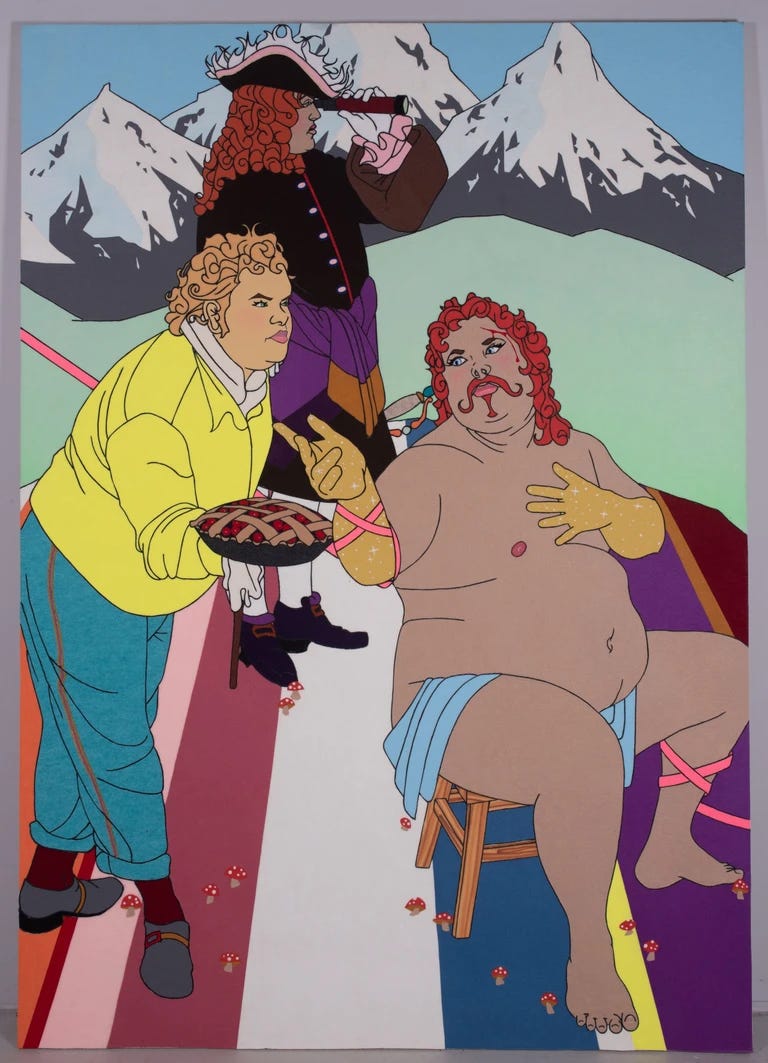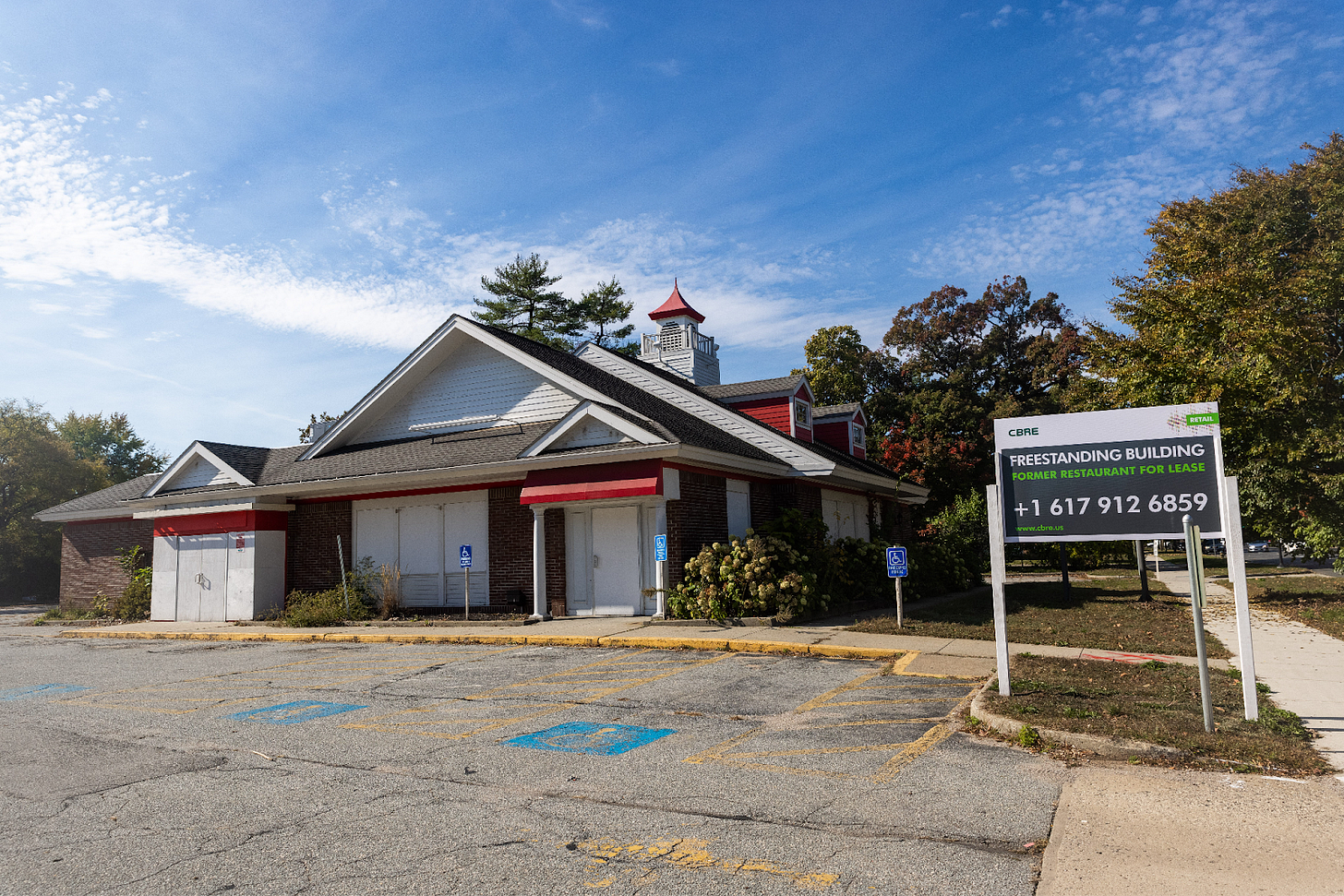
What does it feel like to be of the elite?
Does that not make sense as a question? Maybe a better way to frame it would be to ask what it is that non-elite people imagine the elite have that is so desirable.
I’m arguably of the cultural elite, but I don’t know what that feels like, aside from a sense of security that I’m not being excluded from something exciting. I’ve been to enough of the places where the cultural elite gather, and met enough of the people, to know that it doesn’t add up to much on its own terms.
I know people who are inarguably of the financial elite, and they are almost entirely uninteresting to me. I like some of them and don’t like others, but the ones I like aren’t appealing in any meaningfully different way than the people I like who don’t have immense wealth. They have access to power and the things that wealth can buy you, but unless my perceptual powers are utterly failing me it doesn’t make their experience of the world more exciting than mine.
There is a simple kind of jealousy that arises from someone else having something the lack of which is tangibly painful to you. Not having money sucks. Having money is better. Being physically unattractive is worse than being physically beautiful. Having a job that is interesting is better than having a job that is boring, and having a job that is physically undemanding is better than having to do backbreaking labor. It makes sense that if you are on the wrong side of these divides, you would be jealous of those on the right side of them. But I sometimes wonder if a great deal of the jealousy and resentment that isn’t rooted in these kinds of deprivation is premised on an illusion about what it feels like to be elite. People are imagining some state of existence that doesn’t really exist.
The 500
The big news around Eminent America is that I’ve crossed the fabled 500 subscribers threshold. The 500th subscriber was tmcnam869. As such he becomes the inaugural inductee into my Subscriber Hall of Fame, which (in case you were curious) is located on Sumner Ave. in the Forest Park neighborhood of Springfield, Massachusetts, on the site of what was once the greatest of all Friendly’s restaurants (the bombed out husk of which is pictured below). Congratulations, tmcnam689, you are forever eminent, and American.
Smart Phone Blues and the Parable of the Target Parent
This is a nice piece from my brother Mark on the utter sanity of schools banning smart phones (among other policies and practices that we need to develop to mitigate the harms of smart phone usage, particularly among kids). I share Mark’s long term optimism about our prospects for developing policies that mitigate some of the potential harms of smart phones, but my short term experience of trying to make a difference in my home district was profoundly disheartening. I tried to organize local parents to push for more restrictive smart phone policies in Austin schools, and to my surprise almost every parent I talked to was against it. They wanted their kids to have phones on them at all times.
There were various plausible sounding reasons adduced for this–the issue of school shootings came up a number of times–but my conclusion was that it was mostly about control, or to put it more compassionately it was about the ways in which knowing your kids are reachable and trackable at all times confers a sense of safety. The evidence for the harmful effects of smart phones is substantial but it’s at the population level; it’s usually impossible to identify ill effects directly in your own kid even if he or she is depressed or anxious. Whereas our anxieties about our kids are directly and tangibly assuaged by knowing they have these devices that allow us to track them physically and communicate with them instantaneously.
I toggle back and forth between frustration with the pro-smart phone parents and remembering the parable that I will sometimes offer to new parents in lieu of any actual advice (I don’t believe in advice). I call it the Parable of the Target Parent. It goes something like this: One day you will be in Target and you will see another parent screaming at their kid, or roughly dragging them out of the store, and you will judge them as terrible parents. Another day you will be that parent screaming or manhandling your kid in Target, and you will look at the parents who are judging you, in that moment, and scream at them in your mind that they don’t understand. You’re a good parent. Your kids are being shits. Sometimes it’s just too much. Then another day it will be another parent who is falling apart again, and you will once again judge them harshly. This is the way.
The Great Thomas Chatterton Williams Debate
I’ve been more active on Notes and in the comments over the last month or two than is probably ideal from a work-life-Substack balance perspective. It’s led to some fun interactions, though. The best exchange, I think, is this one between Naomi Kanakia and me in response to her post “The Uncle Tom Trap,” which is itself a kind of response to a conversation she and I had for an episode of my podcast that I have yet to release. Naomi writes:
“I was on a podcast recently and the topic of Thomas Chatterton Williams came up, and the podcast host chided me, saying it sounds like you're calling TCW an Uncle Tom. … I think my critique of TCW is that the easiest and quickest way to literary success is to turn yourself into a character. And if you've been around the literary world long enough, then you start to realize what kind of characters are open to you. And your level of success is directly proportional to how completely you subsume your identity into that of the character. We see with Andrea Long Chu one kind of character–the mouthpiece for indefensible ideas, who offers them up, cunningly but unconvincingly argued, for other people to tear down. In Emily Gould we see a different character–the emotive, out of touch white woman. With Lauren Oyler we see a third character, the critic who enthusiastically undertakes hatchet jobs. … With TCW, he chose to become the millennial who scolded other black people. Regardless of his opinions, that was the source of his power, he was the totem that reactionary whites could use to say see not all black people believe this stuff. As such, the hatred and dislike he inspired amongst left wing intellectuals was key to his rise. Without that rancor, he wouldn't have had a career. Similarly I'm very aware that I have the option of becoming the trans woman who scolds other trans people. The one who pumps the brakes and is like, maybe trans women shouldn't do this, or advocate for that, or demand these concessions. It's not something I want to do, but it's certainly an option that's open.”
I give Naomi a hard time for typing Williams, a writer I admire, in this way. She pushes back. I push back. It’s all very civil but also meaty enough that some value is added.
Good Shit I’ve Read Lately
Raymond Williams’s Resources for Hope, by Jedediah Britton-Purdy
To be radical requires a theory of how this world, for all its problems, contains and is fostering the beginning of another, very different world.
The American Left has abandoned unions, by Freddie DeBoer
Organised workers pose too much of a threat.
Ways of Seeing, by Lisa Borst
Nicholson Baker learns to draw.
An Intro to Freud Is Not an Intro to Contemporary Psychoanalysis, by Awais Aftab
Reviewing Paul Bloom on Freud and the unconscious.
Rootclaim $100,000 Lab Leak Debate, by Scott Alexander
I watched 15 hours of COVID origins arguments so you don't have to - but you should!
On the desperation of female neediness, by Stella Tsandekidou
a response to James Harris
Recent eps of the pod
The National College Basketball Team of Black America
Parsing John Thompson, Georgetown Basketball, race, sports, and the significance of the towel with Kiese Laymon and Jason Sokol.
All That Glitters Is Not Gould
Phoebe Maltz Bovy and I talk Emily Gould, the manosphere, polyamory chic, cultural vs. financial capital, and the divorce industrial literary complex.
Berlin, Trilling, and Niebuhr (and Strauss), Oh My!
Damon Linker and I dwell on the wise men of post-war liberalism.
The Fall of the House of Hitch
Laura Kipnis and I discuss Christopher Hitchens, Janet Malcolm, and love in the time of 'Rona.
Wanderers Above the Sea of Digital Fog
John Pistelli, Ross Barkan and I explore whether we're entering a new age of romanticism.
A short symposium on the myriad ways in which Windex ain't scared, with Jeff Maurer and Mark Oppenheimer.





I definitely need to have a whole episode and/or post on Freddie (you’re right about the one name thing). I’ve long been fascinated by him.
Didn’t know he’d left notes but thank God. He wasn’t handling it well.
I’ll probably leave too at some point. It’s totally seductive at the moment, in what is almost certainly an unhealthy way. I’ll have one or two bad interactions and realize it’s time to go.
Great point about the folly of resenting someone without stopping to think what exactly they have that you lack. Alas, envy has never been the most rational of emotions. In most populist contexts, "elite" has the same basic meaning as "lizard people". Though the rationalisations differ somewhat between left and right, it seems to have something to do with the perception that someone has achieved a degree of social status without merit (ie its a question of thymos). Progressives resent the fact that Musk, who by all appearances has the emotional maturity of a thirteen-year-old, has access to so much wealth and power. Conservatives resent the fact that someone can receive an award for "genius" for arguing one cannot be racist against white people. Once these unsavoury characters are established in the mind, projection season is open. The last thing a populist thinks about is what it is like to be an elite.